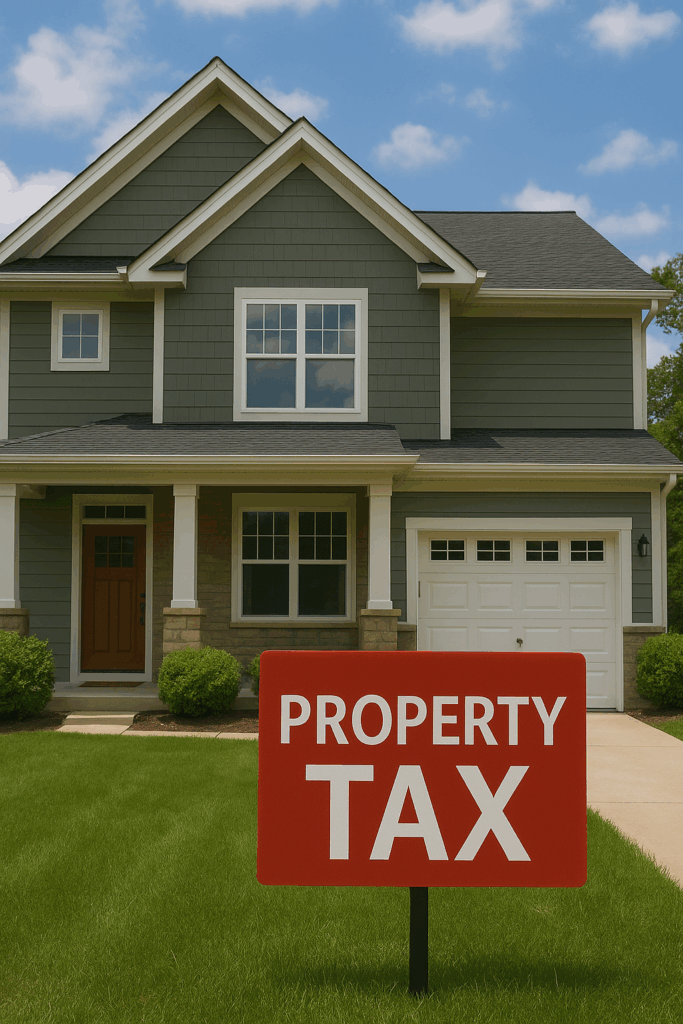Property taxes are one of the most important and sometimes confusing costs of owning a home. They fund essential services in your community, such as schools, roads, public safety, and parks, but many homeowners are surprised by how much they owe or how quickly rates can change. Whether you are a first-time buyer or a seasoned homeowner, understanding how property taxes work is essential for planning your budget and avoiding unwelcome surprises.
What Are Property Taxes?
Property taxes are annual charges that homeowners must pay to their local government. They are based on the assessed value of your property, which typically includes both the land and the structures built on it. Local governments use this revenue to fund vital services, making property taxes one of the main sources of community support.
The amount you pay is determined by two factors: your property’s assessed value and the tax rate (sometimes called a millage rate) set by your city, county, or municipality. Because rates vary widely from one area to another, two homes with the same market value could carry very different property tax bills.
How Are Property Taxes Calculated?
The process starts when a local tax assessor evaluates your home to determine its value. This assessed value may be updated every year, every few years, or only when the property changes hands, depending on local laws. Once the value is established, it is multiplied by the local tax rate to calculate the amount you owe.
For example, if your home is valued at $300,000 and your community has a tax rate of 1.2%, your annual property tax bill would be $3,600. Some areas also add special assessments for schools, infrastructure improvements, or emergency services, which can increase the total.
How Do You Pay Property Taxes?
Property taxes can be paid in different ways depending on your mortgage arrangement. Many lenders include an escrow account with your mortgage, collecting a portion of your property taxes each month along with your loan payment. At the end of the year, the lender pays your tax bill on your behalf.
If you don’t have an escrow account, you will be responsible for paying the tax bill directly to your local tax office, often in one or two installments throughout the year. Either way, it’s important to plan ahead and make sure you have enough funds set aside.
Why Do Property Taxes Change Over Time?
It’s common for property taxes to increase, sometimes significantly, over the years. There are two main reasons this happens. First, your property’s assessed value may rise as the housing market improves or as you make upgrades, such as building an addition or finishing a basement. Second, local governments can raise tax rates to meet budget needs for schools, infrastructure, or public safety services.
For homeowners, this means your property tax bill today may look very different five or ten years down the road. Keeping an eye on local government decisions and market conditions can help you anticipate changes.
Can Property Taxes Be Reduced?
Yes, in many cases there are ways to lower your property tax bill. Some states and counties offer exemptions or reductions for seniors, veterans, people with disabilities, or homeowners who use the property as their primary residence. You can also appeal your property’s assessed value if you believe it has been overestimated.
For example, if similar homes in your neighborhood are valued significantly lower than yours, you may have grounds to request a reassessment. While the process can take time, it could save you hundreds or even thousands of dollars each year.
Planning for Property Taxes as a Homeowner
Because property taxes are ongoing, it’s crucial to factor them into your housing budget. When shopping for a home, don’t just consider the listing price and mortgage payment look at the local tax rate as well. A home in an area with a higher tax rate may end up costing more each month than a similar home in a neighboring community.
It’s also wise to build property tax increases into your long-term financial planning. Even if your tax bill feels manageable now, rising home values and changing local budgets may cause it to grow in the future. Creating a savings cushion and staying informed about local tax policies can help you stay prepared.
Property taxes may not be the most glamorous part of homeownership, but they are unavoidable and essential. They support the services that make neighborhoods safe, livable, and thriving. By understanding how property taxes are calculated, why they change, and what options you have to manage them, you’ll be in a stronger position to plan for the future.
Whether you’re buying your first home or have lived in the same house for decades, staying informed about property taxes ensures that you’re never caught off guard and that you can focus on enjoying your home while still meeting your financial responsibilities.




